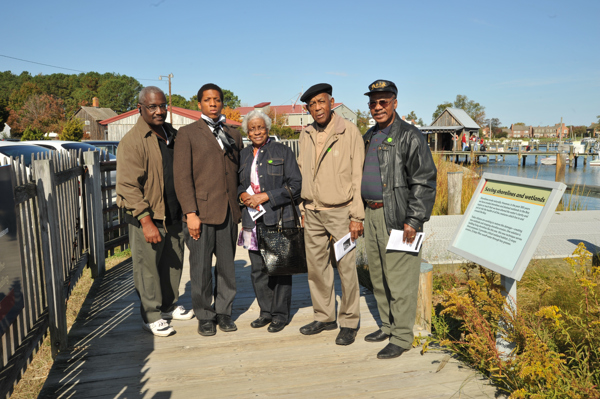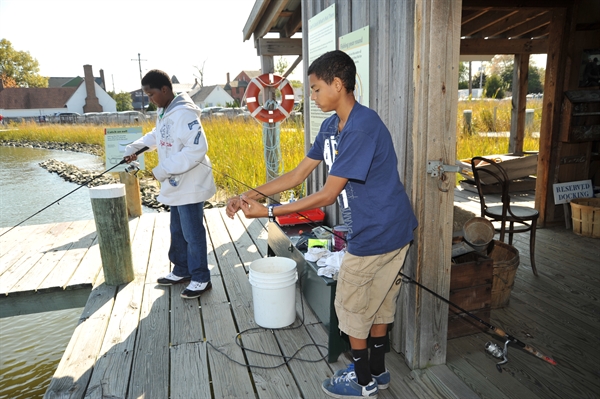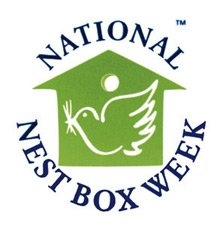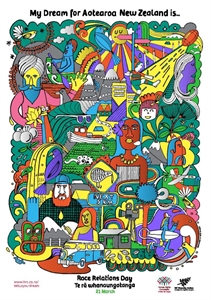Frederick Douglass Day 2025 is on Friday, February 14, 2025: Who Was Frederick Douglass?
Friday, February 14, 2025 is Frederick Douglass Day 2025. Chesapeake Bay Maritime Museum young Frederick Douglass,

Frederick Douglass (February 14[1], 1818 – February 20, 1895) was an American abolitionist, editor, orator, author, statesman and reformer. Called "The Sage of Anacostia" and "The Lion of Anacostia," Douglass was one of the most prominent figures of African American history during his time, and one of the most influential lecturers and authors in American history.
Career
Abolitionist activities
Douglass joined various organizations in New Bedford, Massachusetts, including a black church, and regularly attended Abolitionist meetings. He subscribed to William Lloyd Garrison's weekly journal, The Liberator, and in 1841, he heard Garrison speak at the Bristol Anti-Slavery Society's annual meeting. Douglass was inspired by Garrison, later stating, "no face and form ever impressed me with such sentiments (the hatred of slavery) as did those of William Lloyd Garrison." Garrison was likewise impressed with Douglass, and mentioned him in the 'Liberator'.
Several days later, Douglass gave his first speech at the Massachusetts Anti-Slavery Society's annual convention in Nantucket. Twenty-three years old at the time, Douglass later said that his legs were shaking. He conquered his nervousness and gave an eloquent speech about his life as a slave and his rough life.
In 1843, Douglass participated in the American Anti-Slavery Society's Hundred Conventions project, a six month tour of meeting halls throughout the east and middle west of the United States. He participated in the Seneca Falls Convention, the birthplace of the American feminist movement, and was a signatory of its Declaration of Sentiments.
Douglass later became the publisher of a series of newspapers: North Star, Frederick Douglass Weekly, Frederick Douglass' Paper, Douglass' Monthly and New National Era. The motto of The North Star was "Right is of no sex--Truth is of no color--God is the Father of us all, and we are all Brethren".
Douglass' work spanned the years prior to and during the Civil War. He was acquainted with the radical abolitionist Captain John Brown but did not approve of Brown's plan to start an armed slave revolt. However, Brown visited Douglass' home for several days shortly before the Harpers Ferry incident, in which Brown attacked the federal Arsenal there. After the incident, Douglass fled for a time to Canada, fearing he might be arrested as a co-conspirator. Douglass believed that the attack on federal property would enrage the American public. Douglass would later share a stage in Harpers Ferry with Andrew Hunter, the prosecutor who successfully convicted Brown.
Douglass conferred with President Abraham Lincoln in 1863 on the treatment of black soldiers, and with President Andrew Johnson on the subject of black suffrage. His early collaborators were the white abolitionists William Lloyd Garrison and Wendell Phillips. In the early 1850's, however, Douglass split with the Garrisonians over the issue of the United States Constitution.
Douglass had five children; two of them, Charles and Rossetta, helped produce his newspapers.
Douglass was an ordained minister of the African Methodist Episcopal Church.
Autobiography
Douglass' most well-known work is his autobiography, Narrative of the Life of Frederick Douglass, an American Slave, which was published in 1845. Critics frequently attacked the book as inauthentic, not believing that a black man could possibly have produced so eloquent a piece of literature. The book was an immediate bestseller and received overwhelmingly positive critical reviews. Within three years of its publication, it had been reprinted nine times with 11,000 copies circulating in the United States; it was also translated into the French and Dutch languages.
The book's success had an unfortunate side effect: his friends and mentors feared that the publicity would draw the attention of his ex-owner, Hugh Auld, who could try to get his "property" back. They encouraged him to go on a tour in Ireland, as many other ex-slaves had done in the past. He set sail on the Cambria for Liverpool on August 16, 1845, and arrived in Ireland when the Irish famine was just beginning.
You could get more information from the link below...

Who was Frederick Douglass?
Frederick Douglass was born Frederick Augustus Washington Bailey, a slave in Talbot County, Maryland near Hillsborough, twelve miles from Easton. He was separated from his mother, Harriet Bailey, when he was still an infant. She died when Douglass was about nine years old. Douglass never knew anything about the identity of his father, other than that he was a white man, although some believe that his master, Captain Aaron Anthony, was his father. When Anthony died, Douglass was given to Mrs. Lucretia Auld, wife of Captain Thomas Auld; the young man was sent to Baltimore to serve the Captain's brother, Hugh Auld. When Douglass was thirteen, Hugh Auld's wife, Sophia, broke the law by teaching Douglass to read. Douglass later referred to this in his first abolitionist speach.
In 1837, Douglass met Anna Murray, who sold a poster bed to buy sailor's papers needed for Frederick Douglass's escape. Douglass escaped Slavery on September 3, 1838 boarding a train to Maryland dressed in a sailor's uniform and carrying identification papers provided by a free black seaman.
Douglass continued reading. He joined various organizations in New Bedford, including a black church. He regularly attended Abolitionist meetings. He subscribed to William Lloyd Garrison's weekly journal, the Liberator, and in 1841, he heard Garrison speak at the Bristol Anti-Slavery Society's annual meeting. Douglass was inspired by Garrison, later stating, "no face and form ever impressed me with such sentiments (the hatred of slavery) as did those of William Lloyd Garrison." Garrison was likewise impressed with Douglass, and mentioned him in the Liberator.
Several days later, Douglass gave his first speech at the Massachusetts Anti-Slavery Society's annual convention in Nantucket Island. Twenty-three years old at the time, Douglass later said that his legs were shaking. He conquered his nervousness and gave an eloquent speech about his life as a slave.
In 1843, Douglass participated in the American Anti-Slavery Society's Hundred Conventions project, a six month tour of meeting halls throughout the east and middle west of the United States. He participated in the Seneca Falls Convention, the birthplace of the American feminist movement, and was a signatory of its Declaration of Sentiments.
Douglass later became the publisher of a series of newspapers: "The North Star", "Frederick Douglass Weekly", "Frederick Douglass' Paper", "Douglass' Monthly" and "New National Era". The motto of "The North Star" was "Right is of no sex--Truth is of no color--God is the Father of us all, and we are all Brethren".
Douglass' work spanned the years prior to and during the Civil War. He was acquainted with the radical abolitionist Captain John Brown but did not approve of Brown's plan to start an armed slave revolt. Douglass believed that the Harpers Ferry attack on federal property would enrage the American public. Douglass would later share a stage in Harpers Ferry with Andrew Hunter, the prosecutor who successfully convicted Brown.
Douglass conferred with President Abraham Lincoln in 1863 on the treatment of black soldiers, and with President Andrew Johnson on the subject of black suffrage. His early collaborators were the white abolitionists William Lloyd Garrison and Wendell Phillips. In the early 1850's, however, Douglass split with the Garrisonians over the issue of the United States Constitution.
Douglass had five children; two of them, Charles and Rossetta, helped produce his newspapers.

what effect did frederick douglass have on people?
Frederick Douglass was an amazing orator. In his day, remember, there was no radio or television. Oration was considered an art and elocution was studied in schools. He was, of course, forbidden to attend school as a slave. Even later in most states it would have been illegal for him to attend school just because of his color.
His command of the language, however, was so advanced that he was able to earn sufficient funds to buy his own freedom, and later the freedom of loved ones. His impact had to be significant or he would not have risen to public office in Washington, D.C., whites would not have congregated to hear him speak and his speeches would not be preserved to this day.
An extremely influential man, who overcame more than most from his day, he is still having an impact on our world and world-views.


















